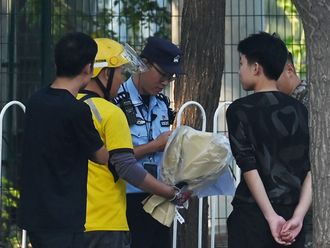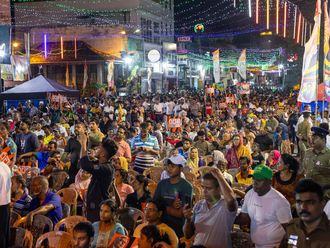Beijing: Beijing on Tuesday celebrated the anniversary of the birth of ancient philosopher Confucius for the first time since the founding of communist China, in a ceremony that included delegates from Taiwan.
The event took place at the Confucius temple in the city's historic Guozijian quarter in honour of China's most famous philosopher, born in 551 BC, whose influence is on the rise again after being suppressed under Mao Zedong.
Long banned by the communist regime which considered Confucianism a feudal belief, this tradition was only officially reinstated in the 1990s in Qufu, birthplace of the Chinese thinker - but never in Beijing.
The ceremony - placed under high security and closed to the public but not to reporters - included Chinese officials alongside a delegation from Taiwan, once China's bitter foe, where Confucianism has always been celebrated.
China and Taiwan split in 1949 and Beijing considers the self-ruled island as part of its territory awaiting reunification, by force if necessary. But ties between the two have improved in recent years.
The ceremony also included 500 young volunteers, most of whom were students at Beijing's Renmin University. Wearing traditional costumes, they performed the body movements that always accompanied the reading of Confucian texts.
The temple was built in 1302 and then extended under the Ming and Qing dynasties. It is the second largest Confucian temple in China after the one in Qufu, in the eastern province of Shandong.
Considered a state religion under the Han dynasty (206 BC-220 AD) but later banned under revolutionary leader Mao, Confucianism - which calls for ruling by virtue and government morality - seems to have been completely reinstated in China.
Confucius Institutes, which aim to promote the Chinese language and culture, have been established around the world.
In January, the biopic "Confucius" starring Hong Kong action movie star Chow Yun-fat attempted to rival "Avatar", the Hollywood blockbuster that was kicked out of some theatres to make way for the Chinese film - without much success.












